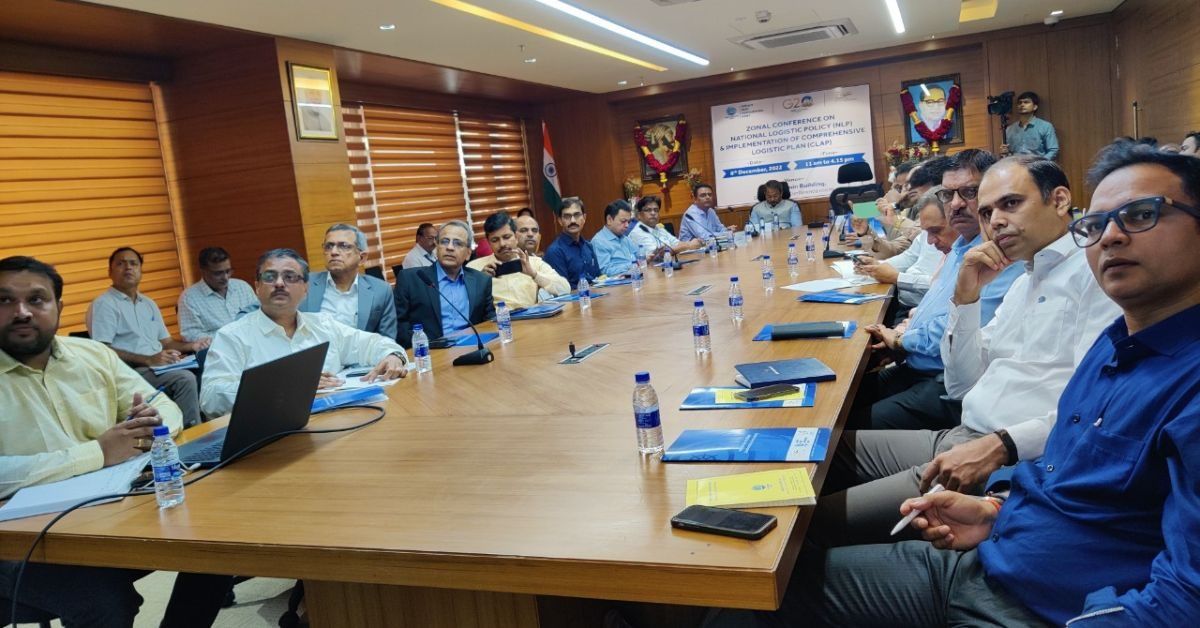Jawaharlal Nehru Port Authority (JNPA), India’s best-performing Port, organized a zonal conference on implementing a Comprehensive Logistic Action Plan (CLAP) with context to adopting the National Logistic Policy (NLP) for Terminal Operators and industry professionals, as per the guidelines of the Ministry of Ports, Shipping, and Waterways, GoI. The conference aimed to apprise the representatives from different sectors about the National Logistics Policy (NLP).
Representatives from DPIIT, the Ministry of Commerce & Industry, the Government of India, Maharashtra Maritime Board, & the Government of Maharashtra, were the speakers at the zonal conference. They were welcomed by Shri Sanjay Sethi, IAS, Chairman, JNPA, and Shri Unmesh Sharad Wagh, IRS, in the presence of all the JNPA officials, Terminal Operators, and industry professionals.
Addressing the zonal conference on implementing a Comprehensive Logistic Action Plan (CLAP) with context to adopting the National Logistic Policy (NLP), Shri Sanjay Sethi, IAS, Chairman, JNPA, said, “The National Logistics Policy is the path-breaking initiative with the potential to bring the much-required transformation in the logistic ecosystem. The NLP aims to break the silos and integrate all the sectors & agencies to reduce logistics costs & time.”
He added, “The smart technology and the unified platform for all the data will enable the end user to get directly connected, get detailed information, and help them in decision making.”
The representative from DPIIT, Ministry of Commerce & Industry, GoI, gave a presentation on the National Logistics Policy and the Comprehensive Logistics Action Plan (CLAP), and the representative from the Government of Maharashtra, apprised about the Maharashtra State Logistic Policy (implementation roadmap & monitoring framework) through a presentation. An interactive session followed the presentations.
During the interactive session, stakeholders, terminal operators, and industry professionals raised and discussed their concerns regarding the policy with representatives from the state central government, which will help to enable the efficient execution of the policy with the expected result of reducing the logistics cost.







